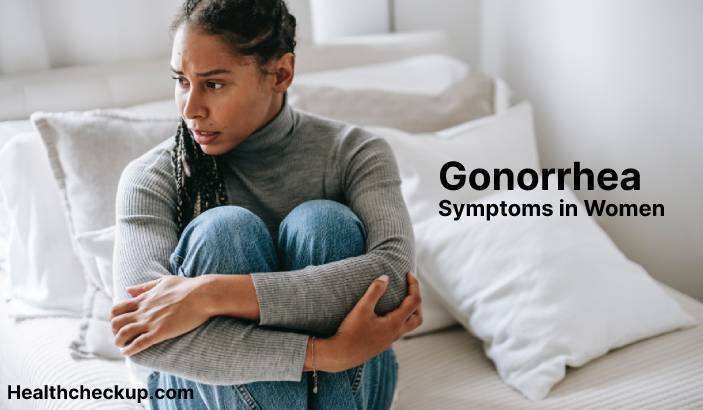Gonorrhea is a sexually transmitted disease (STD) caused by the bacterium Neisseria gonorrhoeae. In women, the infection can occur in the cervix, uterus, and fallopian tubes. The following are common symptoms of gonorrhea in women:
- Abnormal vaginal discharge: This can be thick, yellow, or green in color and have a strong odor.
- Painful urination: Women experience a burning sensation when they urinate.
- Pain during sex: Women feel pain or discomfort in the lower abdominal area during or after sexual intercourse.
- Bleeding between periods: Women experience unexpected bleeding or spotting between periods.
- Itching or soreness in the genital area: Women feel itching, burning, or soreness in the vaginal area.
It is important to note that many women with gonorrhea do not show any symptoms. If left untreated, gonorrhea can cause serious health problems, including infertility. If you think you have gonorrhea, it is important to see a doctor for diagnosis and treatment. Treatment for gonorrhea typically involves antibiotics.
In addition to the symptoms mentioned above, there are other potential complications associated with gonorrhea. If left untreated, the infection can spread to other parts of the body, including the bloodstream and joints. This can cause serious health problems, including pelvic inflammatory disease (PID), infertility, and ectopic pregnancy.
PID is an infection of the reproductive organs that can cause pain and discomfort in the lower abdominal area. It can also lead to infertility if left untreated. Infertility is a condition that prevents a woman from becoming pregnant. Ectopic pregnancy is a serious condition in which a fertilized egg implants outside the uterus, typically in the fallopian tubes. This can be life-threatening and requires immediate medical attention.
Gonorrhea can also increase the risk of contracting other STDs, including human immunodeficiency virus (HIV). This is because the bacterium that causes gonorrhea can weaken the body’s immune system, making it easier for other infections to take hold.
In order to reduce the risk of contracting gonorrhea, it is important to practice safe sex. This means using condoms during sexual activity and avoiding sexual contact with partners who have STDs. It is also important to get tested regularly for STDs, especially if you have multiple partners or engage in unprotected sex.









